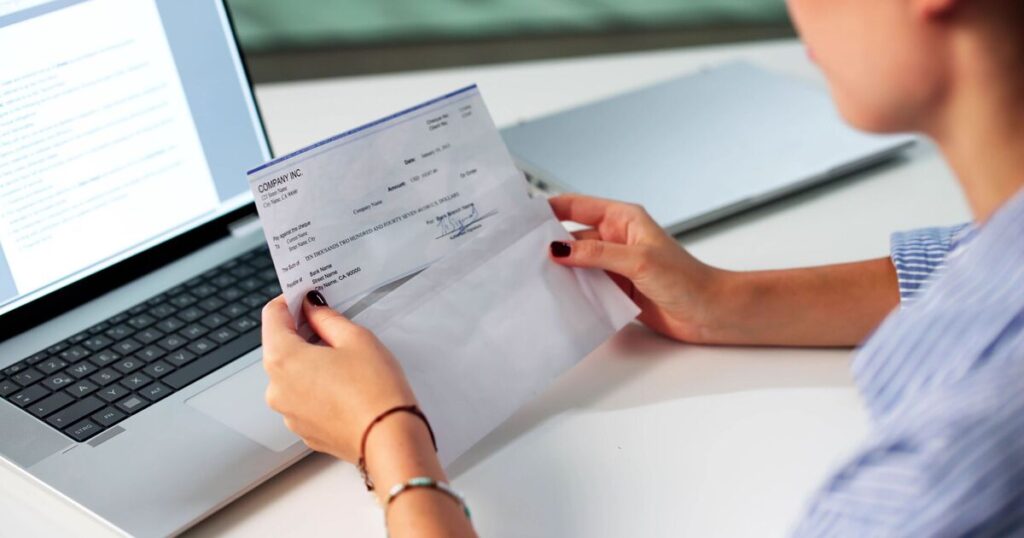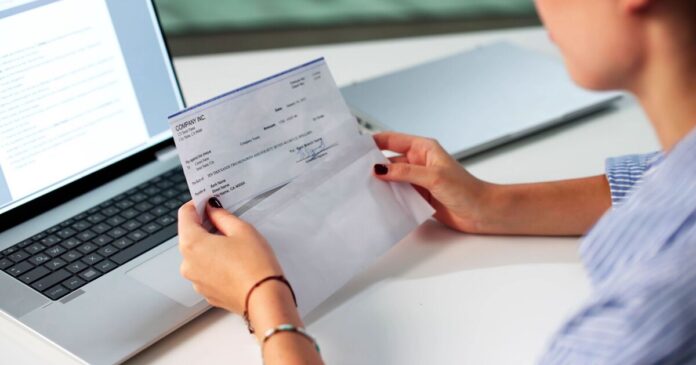
When was the last time you studied the pay cheque you get from your job?
If you’re in employment, you should receive a payslip whenever you get paid for your work. This includes important details such as how much money you made, how much you paid in tax, any pension payments you made, and other information about outgoing or incoming funds.
Most of us will admit, however, that we don’t really look at our payslips that often. As long as the cash comes into your bank account on time, many of us aren’t interested in knowing the finer details – especially if they’re the same every month.
But one chartered accountant has urged everyone who collects a paycheque to make three important checks. This is especially important if you’ve just started a new job or just landed your first job.
Abigail Foster shared a video on Instagram in which she highlighted the three most important things everyone should check on their payslips, as she said if the details are incorrect, you could be overpaying in certain areas – meaning less cash in your pocket each month.
1. Tax code
The first thing you should check is your tax code. For the vast majority of people, your tax code should be “1257L”. This is the code used for most people who have one job, as it denotes the £12,570 personal allowance threshold before you start paying income tax. The L is the code used to explain that you’re entitled to the standard allowance.
Abigail said: “It should be 1257L. If it’s not, please check yours, because it could mean you’re over- or underpaying tax. The 1257 refers to getting £12,570 of personal allowance.”
Tax codes may be different for some people, and it’s up to you to make sure that yours is correct. The numbers at the start always refer to personal allowance, but the letters denote a variety of things. For example, “0T” means your personal allowance has been used up, and “NT” means you’re not paying tax on this income.
You can check the full list of tax codes on the GOV.UK website, which will also give you instructions on how to update your tax code if you believe yours is wrong. It is your responsibility to make sure your tax code is correct, not your employer’s.
2. Student loan deductions
Next, Abigail said everyone should check if student loan payments are being deducted from their pay slips. If you didn’t go to university or have no outstanding debt, you shouldn’t be paying anything.
However, if you know you do have student loan debt, you need to check which plan you’re on and make sure that if you’re earning over the minimum threshold, you’re making the payments you should be making.
If you went to university before 2012, you’ll likely be on plan 1. Those who went between 2012 and 2023 should be on plan 2, while those who took out a student loan from 2023 onwards will be on plan 5.
Abigail said: “They all mean you repay at different thresholds, so please check it.”
3. Pensions
You might not think it’s important now, but thinking about your pension years in advance will help set you up when you eventually stop working. You don’t want to be left without the cash you need in your elderly years because you didn’t check that you were setting money aside during your working years.
The accountant urged people to check their employer’s pension agreement, as she said some companies will match your pension contributions if you set aside a slightly higher amount of your monthly salary, which can quickly add up to a healthy pot.
Abigail explained: “Your workplace pension, for most people, works like you put in 5% and your employer puts in 3%. But have a look at whether if you put 6% in, your employer might match up to 6% or even higher.”






















